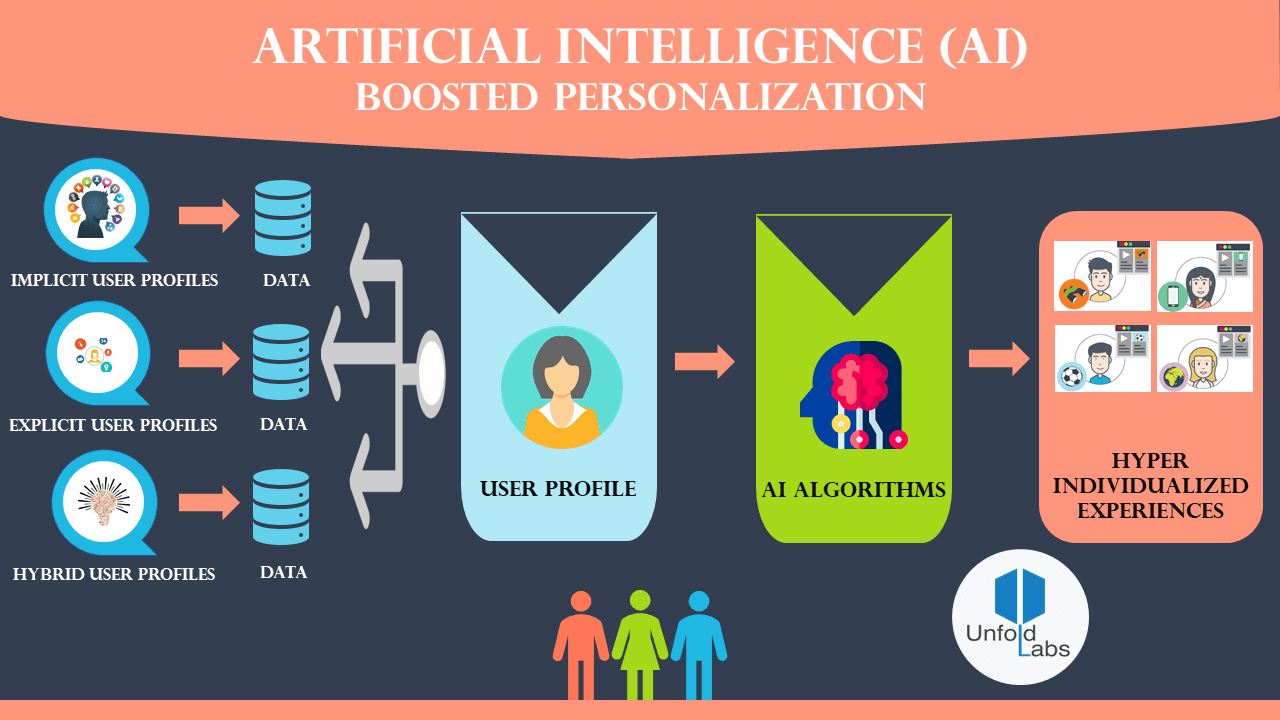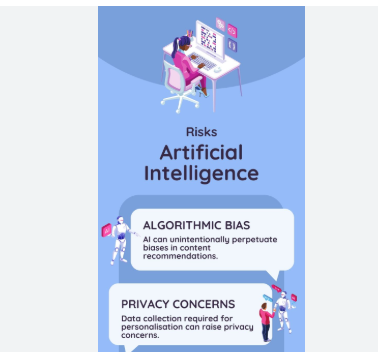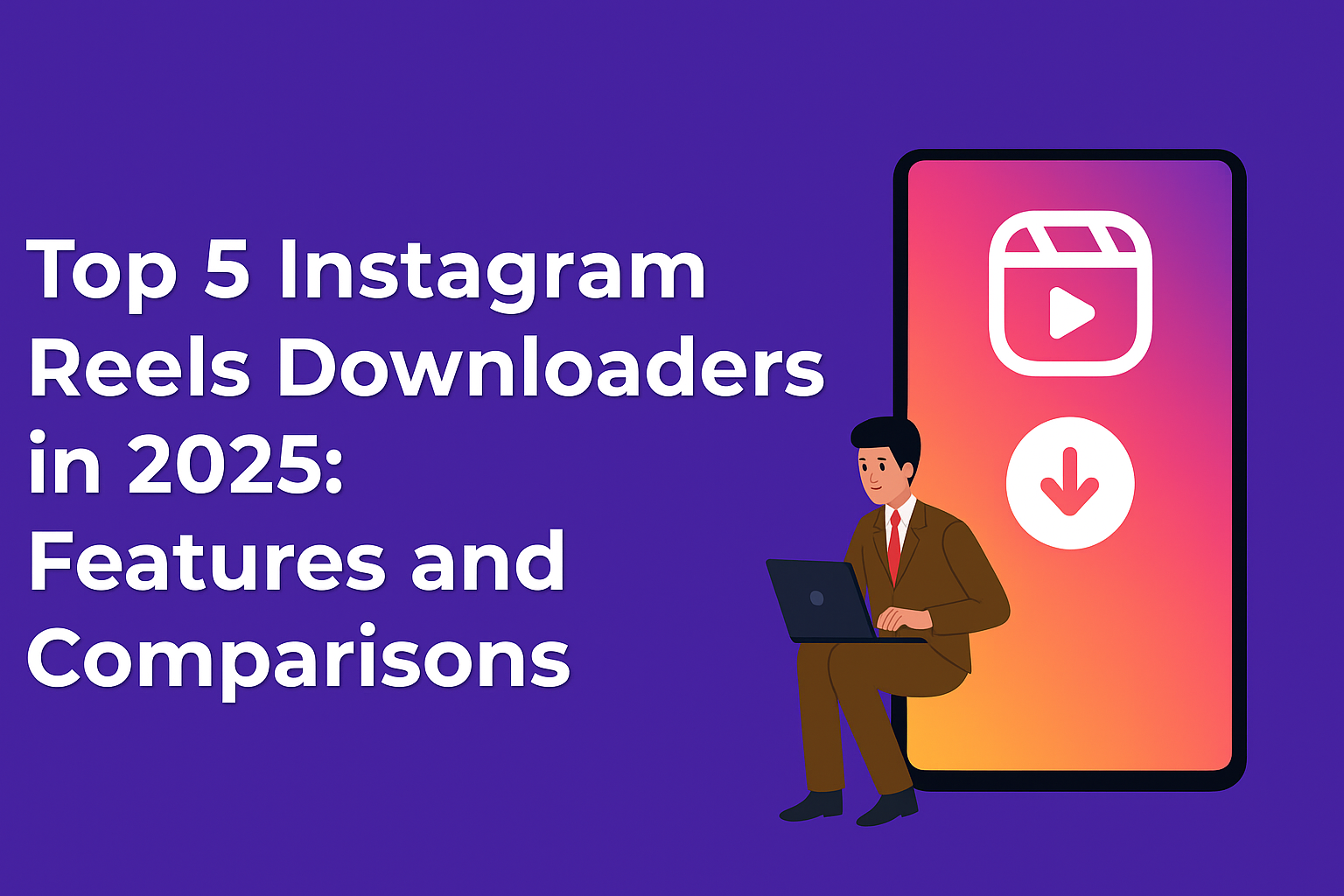Since generative AI tools like ChatGPT launched in 2022 the way content is created has changed quite a lot.
What started as an experiment has now become a valuable part of content marketing for marketers, creators, and businesses to build a good online reputation and to expand their businesses on that—often supported by AI-based scheduling and planning platforms like Postfity

But with all this convenience, things are starting to change, not just in how we make content, but in how we connect and interact with it. As AI takes on more of the creative work, people are starting to ask: Can we still trust what we see? Is the content original? And does it still feel real?
In this article, we’ll understand how AI-generated content is reshaping social media, explore the ethical concerns it raises, and look at the challenges we can’t ignore.
What Is AI-Generated Content?
AI-generated content refers to text, images, audio, or videos created using machine learning. These tools, often the result of specialized AI Chatbot development services, use large datasets to learn patterns and generate content that sounds or looks human-made. As a result, AI-generated content can be used for everything from writing social media posts and blog articles to creating marketing videos and digital art—often in a fraction of the time it would take a person.
AI-generated content is everywhere, from social media captions and blog posts to product descriptions and video scripts. These AI content creation tools can produce in minutes what would normally take hours, making them incredibly efficient. They don’t tire, they don’t miss deadlines, and they can churn out consistent, on-brand material at scale.

Models like ChatGPT for text and DALL-E, Midjourney or LightX for AI-generated images, and tools like Synthesia or HeyGen for video avatars are leading this transformation.They help brands scale content creation software quickly while maintaining consistency and saving resources.
On social media, AI can:
- Write captions and tweets
- Auto-generate hashtags
- Design posts and ads
- Create synthetic influencer videos
- Respond to comments
- Translate or summarize content
- Personalize user experiences
These AI SEO tools help creators save time, scale faster, and even experiment creatively—but they also come with a new set of challenges.
Reasons for Boom in AI-Generated Content on Social Media
AI-generated content is taking over social media, offering speed, creativity, and consistency like never before. Marketers and creators are embracing it to stay ahead in this digital world for creating AI social media posts.

1. Speed & Scale
AI allows marketers and content creators to produce content at lightning speed—something that’s nearly impossible to achieve manually.This means more content output with less effort, helping brands stay consistently visible.
2. Personalization
AI writing tools can tailor content for different audience segments, increasing engagement and conversion. From custom product recommendations to localized captions , even in specialized fields like healthcare development services, these tools deliver more relevant and effective messaging.

3. Cost-Effectiveness
Instead of hiring multiple writers, designers or editors, brands can now leverage AI tools to handle most content creation tasks. Startups, for example, often use accounting software for startups alongside AI-based marketing tools to streamline operations, save costs, and maintain consistency. Businesses can also tap into white label marketing services to further streamline operations, outsourcing content creation while maintaining brand consistency.Businesses can also tap into white label marketing services to further optimize their workflows.
4. 24/7 Presence
AI chatbots and automated comment replies help brands stay active on social media 24/7. They provide instant responses to customer queries, boosting engagement and satisfaction. This real-time interaction also strengthens brand presence and trust. To maintain high-quality, accurate, and context-aware responses from AI chatbots, businesses often rely on an LLM evaluation framework that continuously monitors and refines their language models.
5. Saves Time
AI content generator speed up repetitive tasks like writing captions, editing images, or generating content ideas. AI is also making it easier to repurpose long-form content into short, scroll-stopping video clips that perform well on social media and AI clips are helping creators grow faster online.

Ethical Concerns of AI-Generated Content
But with these benefits come questions: Who owns the content? Is it ethical to post AI-generated content without disclosure? Can we trust what we see anymore?
Let’s break down some of the major ethical issues surrounding AI content on social media:
1.Plagiarism and Ownership
Who owns AI-generated content? Some platforms don’t allow copyright protection for purely AI-created work. There's also the risk of plagiarism, especially if AI content generators copy closely from training data.
Ethical Tip: Treat AI as a co-creator, not a full substitute. Add your own input and verify originality using plagiarism tools. Always review AI-generated content for unintentional overlaps,this helps with transparency and also maintains ethical standards in content creation.
2. Deepfakes and Misinformation
AI can create highly realistic but fake audio, video, or images—raising concerns about manipulated media, false news, and digital impersonation. Always consider the real-world consequences before sharing or publishing AI-generated media.
Ethical Tip: Avoid using generative tools to create misleading visuals or impersonate real people, especially without consent. Clearly label AI-generated content when necessary and prioritize truthfulness to prevent spreading misinformation.

3. Content Authenticity & Human Creativity
AI may dilute the authenticity of social media, which thrives on real human stories, flaws, and emotions. Over-relying on AI content can result in material that feels generic, repetitive, or emotionally flat. Leveraging Agentic AI frameworks can help creators maintain human-like creativity while still benefiting from automation and scale. AI can boost productivity, but without a human creative voice, content quickly loses its soul and uniqueness,” says Kevin Baragona, founder at DeepAI.
Ethical Tip: Use AI to assist, not replace, your creative voice. Let it enhance your ideas, but ensure the final content reflects your unique perspective and intent. This balance maintains authenticity and builds trust with your audience.
4. Cultural and Social Bias
AI models are trained on vast datasets from the internet—which can reflect existing societal biases. This means your AI-generated content might unintentionally reinforce stereotypes or use inappropriate language.
Ethical Tip: Always review and edit AI-generated content for cultural sensitivity and inclusivity. Be mindful of language, tone, and representation to ensure your content doesn’t perpetuate harmful stereotypes. When in doubt, involve diverse perspectives to create more balanced and respectful output.
5. Lack of Transparency
When content is AI-generated but not disclosed as such, audiences may assume a human wrote it or that it's based on lived experience. This can be misleading, especially in personal storytelling, reviews, or opinion pieces.
Ethical Tip: Always label AI-generated content when it replaces or mimics authentic human experience. Transparency builds trust with your audience and helps set clear expectations. Clearly stating the use of AI ensures readers aren't misled and can better evaluate the content's credibility.

Key Pitfalls to Watch Out For
Even the best strategies can fail if you overlook common mistakes. It’s important to stay aware of potential roadblocks that can slow you down or lead to costly setbacks. Here are some key pitfalls to watch out for when using AI in social media.
- Trust Erosion
If followers feel deceived by AI-generated content presented as personal or genuine, it can damage your brand's reputation. Lack of transparency can lead to declining engagement and long-term trust issues with your audience.
- Over-Automation
Automated replies and AI-generated content can lack nuance, humor, or empathy—leading to robotic conversations and tone-deaf posts. This can make your brand feel distant or impersonal, especially on platforms that value authentic engagement.
- Algorithm Overdependence
Creators relying solely on AI tools to make content optimized for algorithms may produce generic material, harming engagement and brand identity. Learning how to use AI agents effectively can help strike the right balance between automation and originality, preserving the human touch your audience expects.When content starts to feel repetitive or soulless, followers may tune out or unfollow.
- Accessibility Gaps
AI-generated content often lacks human oversight, which means features like alt text or accessible design may be overlooked.Inclusive design still requires human input to meet the needs of all users, especially those with disabilities.
- Legal Risks
Using text to speech clones, AI music, or AI-generated images of real people without rights can lead to copyright issues or defamation lawsuits. It’s crucial to understand usage rights when using the best AI content Detector creation tools to avoid legal trouble.

Conclusion
AI-generated content is here to stay—and it’s already reshaping how we engage, communicate, and consume on social media. From generating captions to producing full videos, AI content offers incredible speed and efficiency. But with great power comes great responsibility. Ethical content creation in the age of AI isn’t just about following the rules—it’s about building genuine connections with your audience. People crave authenticity, transparency, and a human touch—even when technology is involved.
By staying informed, transparent, and ethically grounded, you can use AI-generated content as a powerful tool to enhance your social media presence—not replace the heart of it. Blend automation with empathy, innovation with integrity, and you’ll create content that not only performs well but also earns long-term trust.
FAQs
Q1. Should I disclose when I use AI for my posts?
Yes, especially if the content is presented as personal, educational, or opinion-based. Transparency builds trust.
Q2. Is AI-generated content allowed on all platforms?
Yes, but with varying rules. For example, platforms like YouTube and Instagram require disclosure for AI-altered content that could mislead viewers.
Q3. Can AI help with video content too? Definitely. Tools like Pictory, Synthesia, and Lumen5 can turn text into video using AI-generated avatars, voices, and graphics.
Q4. How do I avoid bias in AI content?
Always review AI-generated content with a critical eye and consider diverse perspectives when editing and posting.
Q5. Are AI-generated images safe to use commercially? Only if you’ve checked copyright and licensing terms. Some AI image tools prohibit commercial use or require proper credit.








